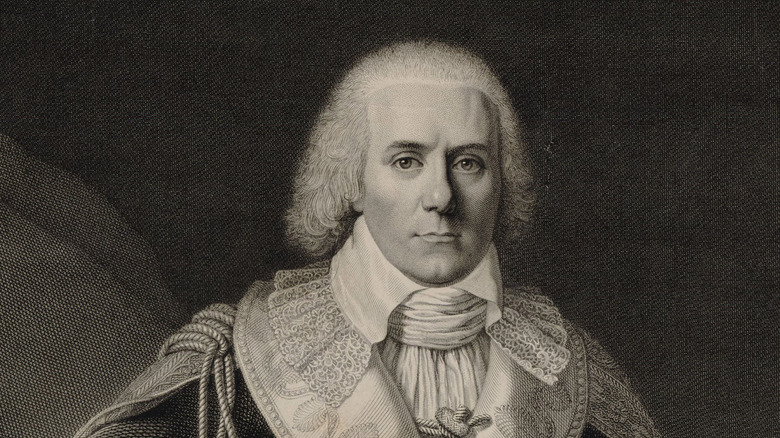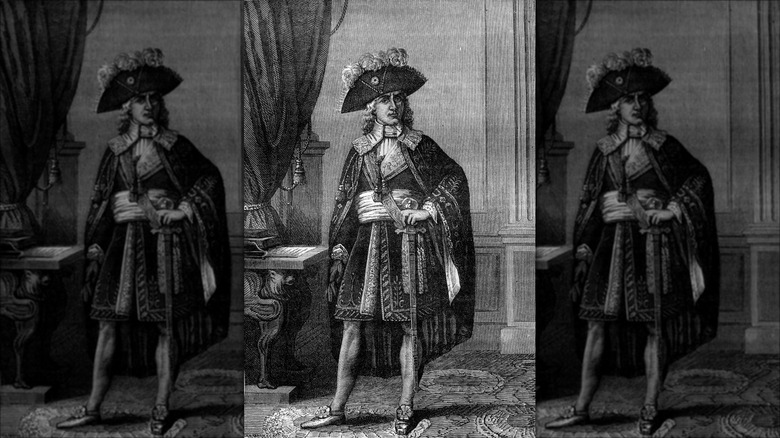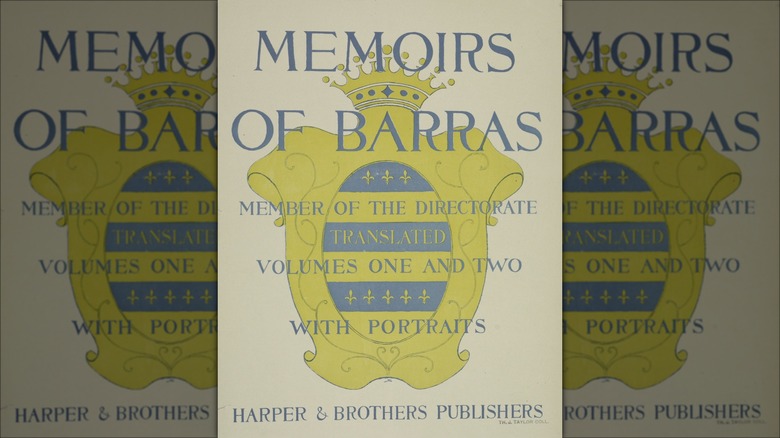What Happened To Paul Barras After Napoleon's Coup?
The French Revolution was one of the most significant and turbulent events in European history. The brief period between 1789 and 1794 saw the downfall of the monarchy, the installation of a new form of democratic government, and the killing of around 1,400 members of the aristocracy, among them the dethroned King Louis XVI. It might be tempting, then, to assume that the revolution was to the disadvantage of the French nobility across the board.
But that wasn't the case for Paul-François-Jean-Nicolas, Vicomte de Barras, more commonly known as Paul Barras. After a spell as a Languedoc gentleman cadet in India he joined the infamous Jacobin Club and later became instrumental during the Reign of Terror. Notably, he voted with the majority for the king's execution and was a major player in the coup of 1794 that saw the overthrow of Maximilien Robespierre. As his political and military power grew, Barras managed to successfully defend his position alongside the future emperor Napoleon Bonaparte, establishing the revolutionary government known as the Directory in 1795. However, like Barras, Bonaparte was a political operator as shrewd as he was merciless, and four years later Barras found himself on the receiving end of yet another coup. His career and place in French society never recovered, though he lived a comfortable life until his death.
Downfall and exile
Paul Barras' position during the French Revolution and beyond was in many ways secured by his close relationship with Napoleon Bonaparte, with Barras exerting a profound effect on the future emperor's life. Specifically, Barras is said to have been something of a matchmaker for Bonaparte and the woman historians later identified as one of the most significant romantic entanglements in the emperor's life — Joséphine, whom he married in 1796.
Barras was a big winner in the establishment of the Directory, which saw him consolidate considerable power at the same time that he began to indulge in a lavish lifestyle. He eventually became a symbol of the rampant corruption of the new status quo, so much so that by 1799 his position had become untenable in the eyes of his former ally. On November 9, 1799, Bonaparte executed yet another coup, which brought about the downfall of the Directory and the establishment of the Consulate, with Bonaparte himself as First Consul. Though Barras had resigned from his position, Bonaparte still saw him as a threat and potential conspirator against him. As such, Barras was exiled from France and sent to live in Brussels between 1801 and 1805. Though he returned to France after this period, reports that he had been conspiring with King Charles IV of Spain and King Louis XVIII saw him banished from France again in 1813.
A peaceful retirement
Paul Barras' political downfall and banishment from French society can't be said to have been as harrowing as it would have been for any regular Frenchman at the time. Barras, who was already a member of the nobility before entering public life, had earned himself a fortune in the years prior to his exile through his connections and willingness to engage in corruption. According to "Talleyrand: A Biography," when Barras was at his most powerful as leader of the Directory, he freely took money from the treasury. And while he squandered much on gambling and debauchery, he was later able to maintain a decadent lifestyle despite living in ignominy. After the restoration of 1815, Barras resided at his estate at Chaillot, where he spent the rest of his life indulging himself and writing. He died in 1829 at the age of 73.
In his later years, Barras composed three volumes of memoirs, which because of the establishment of the Second Empire were only published in 1895 and 1896 — more than 60 years after his death. However, according to the historian Max Sewell, Barras' recollections are likely untrustworthy, as it is believed that the former director of France never forgave Napoleon Bonaparte for his downfall and left behind a biased account of his life and legacy (via The Napoleon Series).


